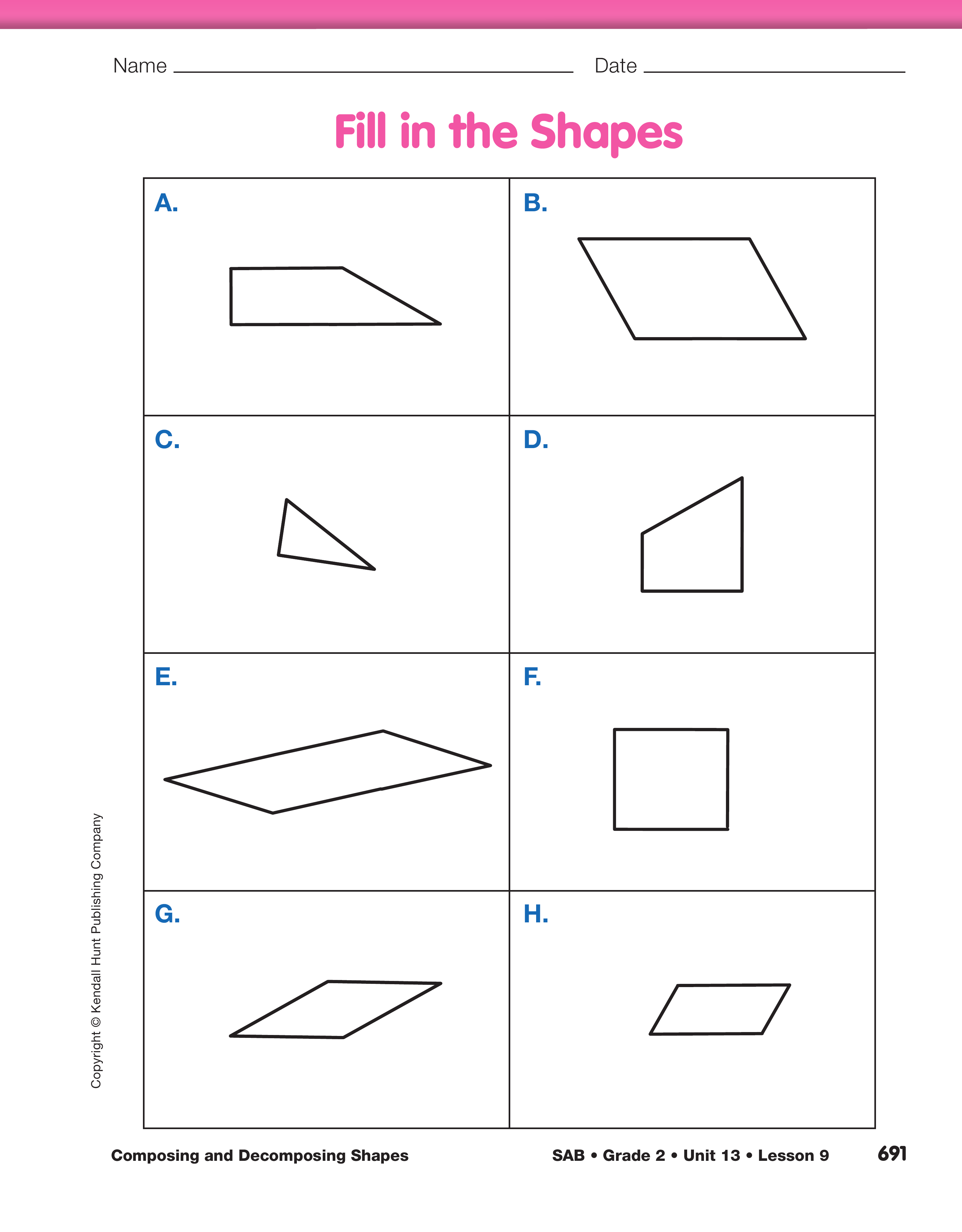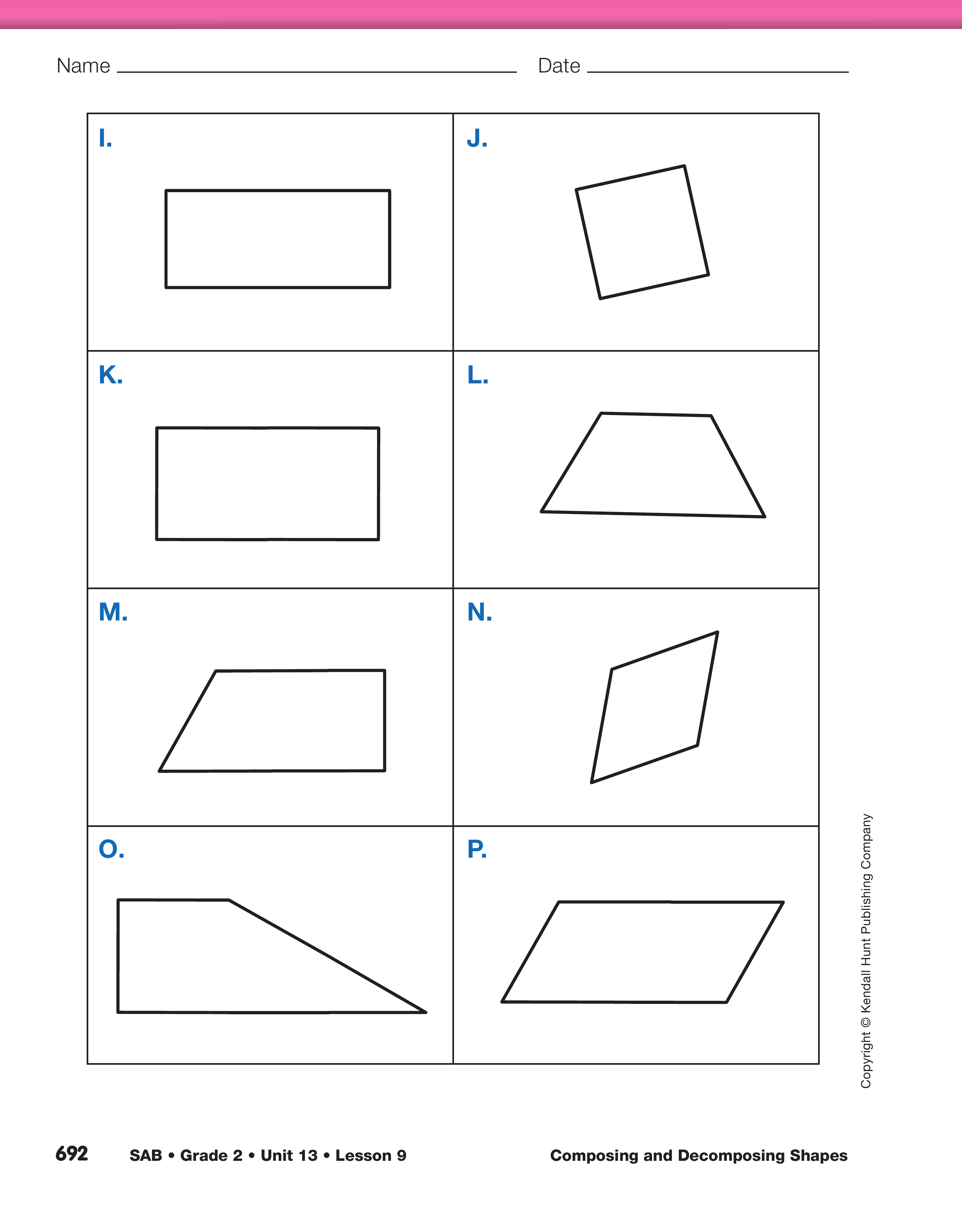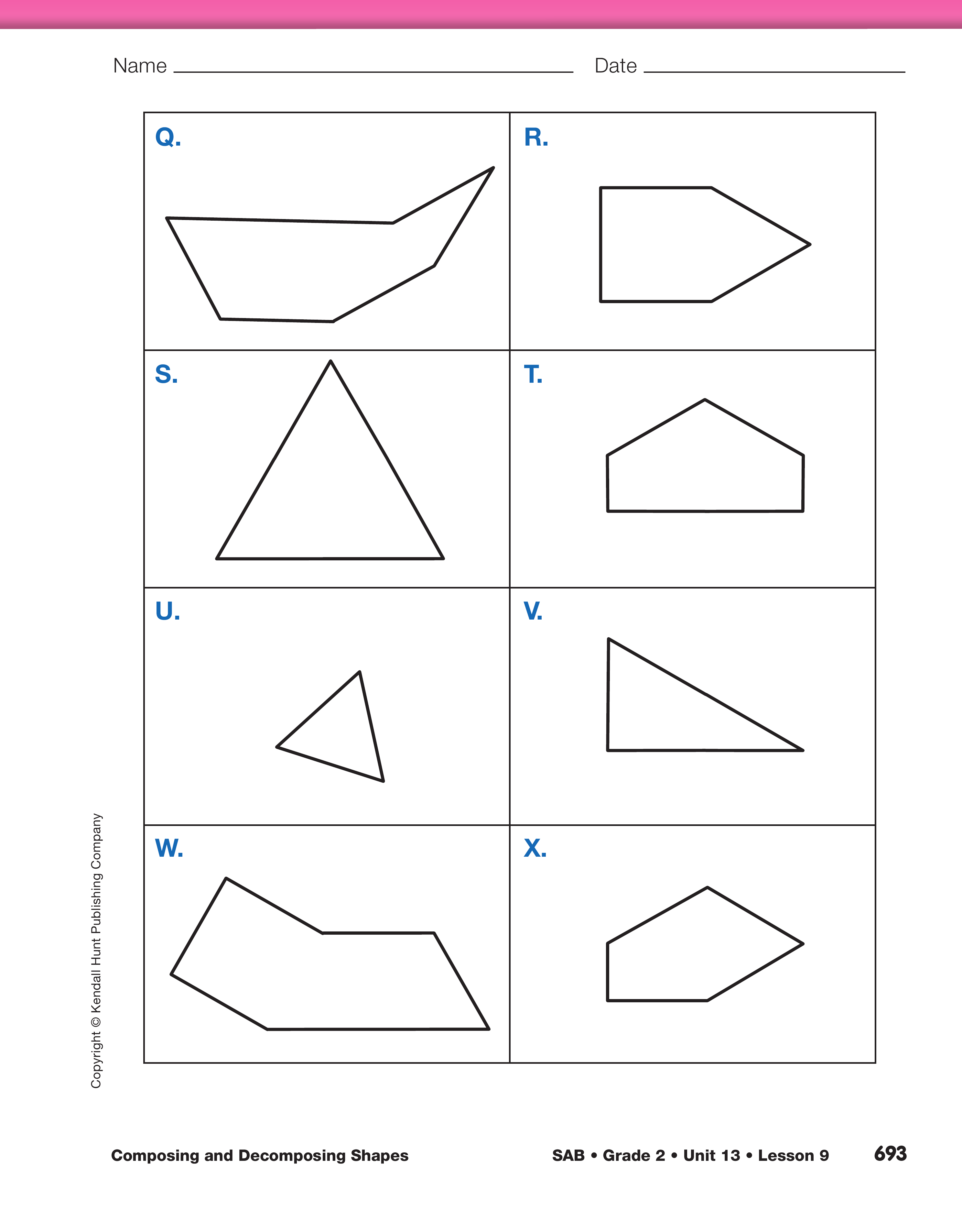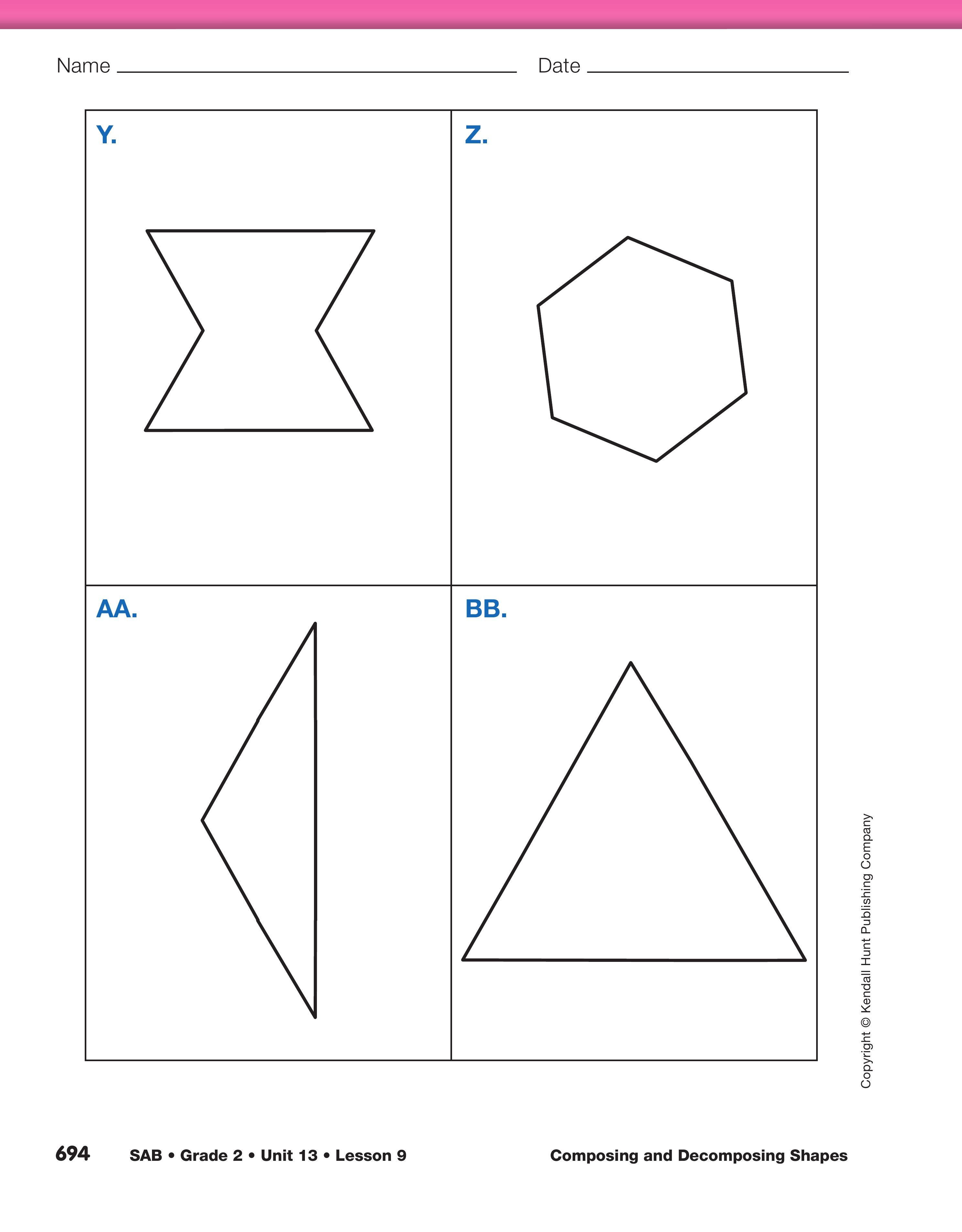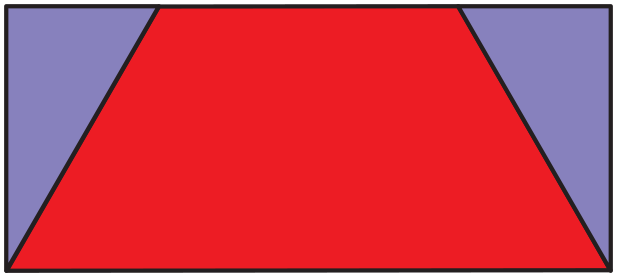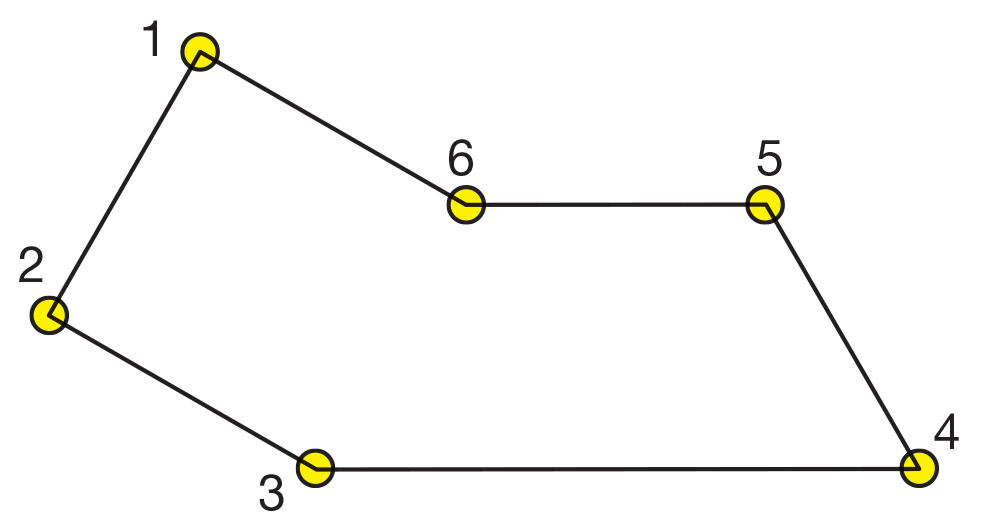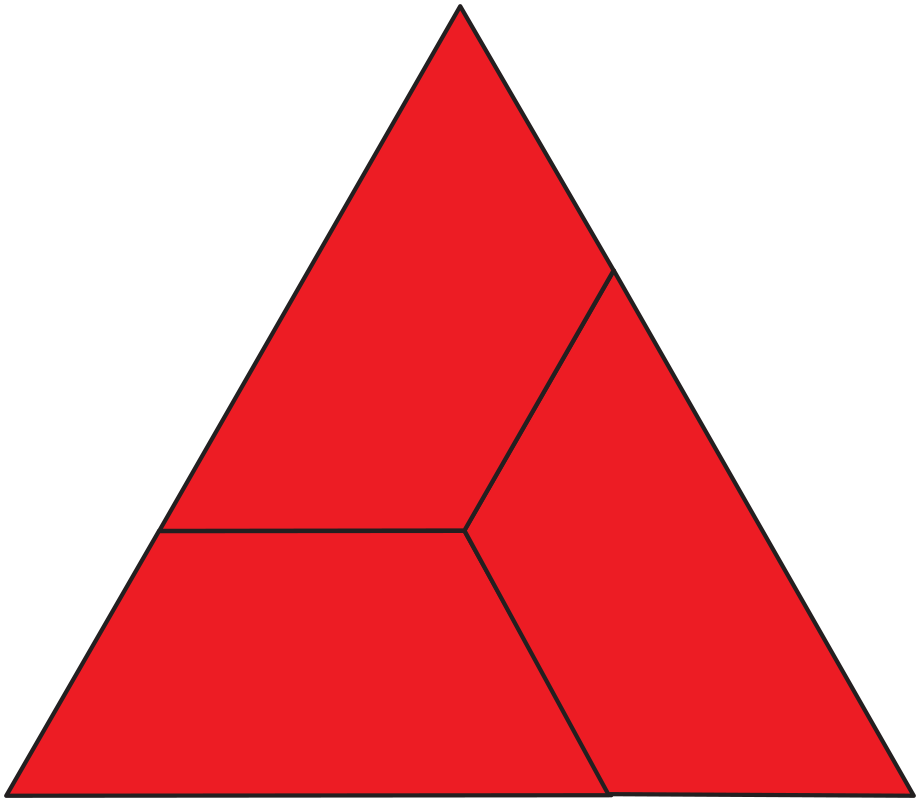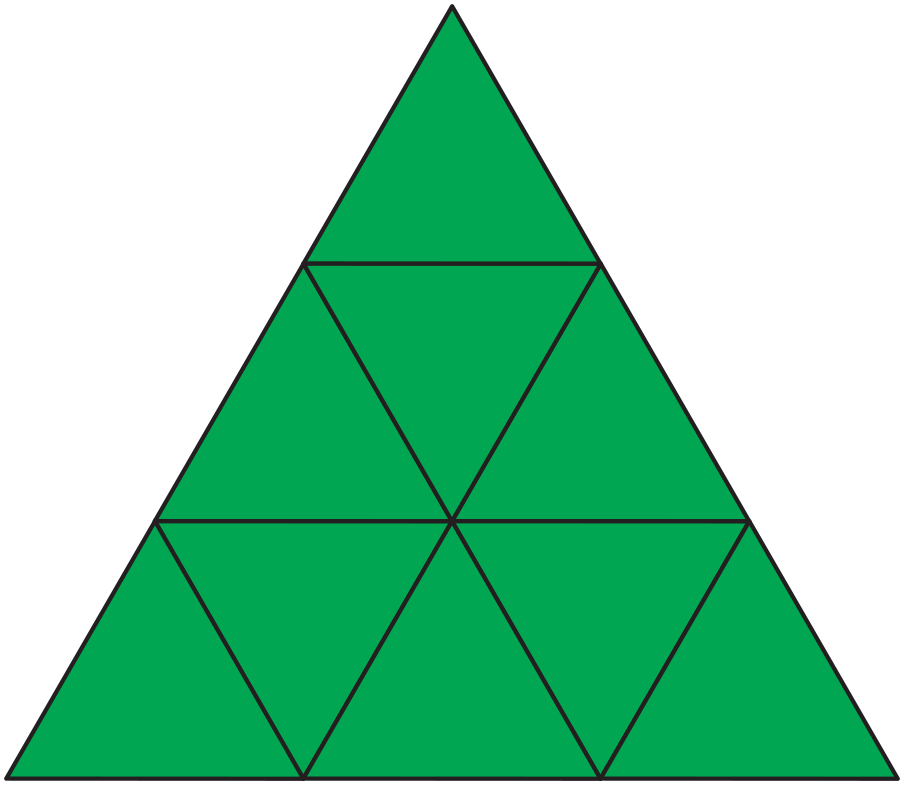Fill in Shapes. Each student will need a complete
set of pattern blocks. Tell students to remove the Fill
in the Shapes pages from the Student Activity Book
and lay them flat. Instruct students to use the pattern
blocks to fill in the outlines on the page. They can
trace the pattern blocks to record the shapes needed
to fill in each outline. See Figure 1. As students
compose the shapes, they become familiar with the
shape's attributes such as the number of sides, number
of angles, lengths of sides, and types of angles.
To help students focus on the attributes of the
shapes, circulate as they work and ask individual
students questions such as the following:
- How did you decide which block to put in this corner?
- Would a square fit there? Why or why not?
- Would a triangle fit there? Why or why not?
- Which shapes won't fit into this corner?
- Which shapes won't fit along this side?
- Count the angles in Shape [Q, W, Y]. Circle each
angle.
- Does this shape have parallel sides?
- How can you check if the sides are parallel?
- How many sides does Shape [Q, W, Y] have?
- Does Shape [T, W] have any right angles?
- I see you used [triangles] to cover Shape [S]. Can
you use other shapes to cover it?
- I see you used 2 purple triangles and 1 red trapezoid
to cover Shape I. Can you use 5 blocks to
cover it?
- I see you used 2 blue rhombuses to cover Shape P.
Can you use 4 blocks of the same shape to cover
it?
Analyze Shapes' Attributes. Upon completion, display
the Fill in the Shape pages and talk about some
of the shapes.
- How many sides does Shape [Q, W, Y] have? (6; 6; 6)
- Show us how to count the number of sides in this
shape. Draw lines on the display as you count.
- How many angles does Shape [Q, W, Y] have? (6; 6; 6)
- Show us how to count the number of angles in
Shape W. Circle each angle. (See Figure 2.)
- Show how you filled in the outline of Shape BB. (See Figure 3.)
- Who would like to show a different way to fill in
Shape BB? (See Figure 4.)
- How did you decide which pattern block would fit
in this corner of Shape [O]?
- Who would like to show us a shape that contains a
right angle? (Possible response: Shape A)
- How do you know that is a right angle? (Possible
response: It looks like an L and I can perfectly fit
the square pattern block into this corner.)
- Do any shapes contain more than one right angle? (Possible response: Shape T contains 2 right
angles.)
- Does Shape [X] have any right angles?
- Who would like to show us a shape that contains
parallel sides? (Possible response: Shape E has
2 sets of parallel sides.)
- How do you know that these are parallel sides? (Possible response: The lines that make the opposite
sides of the larger shape always stay the
same distance apart, like railroad tracks. The
lines will never cross.)
- Does Shape D have any parallel sides? Show us. (yes, one set)
Collect the Fill in the Shapes pages. Students will
use these pages again in Lesson 10.













